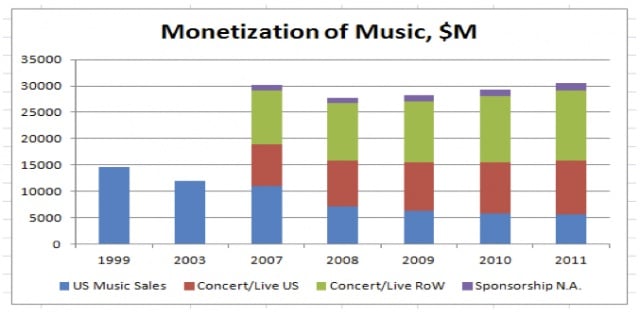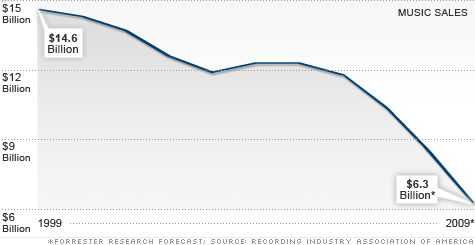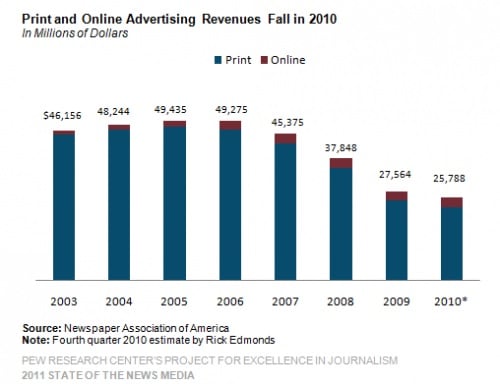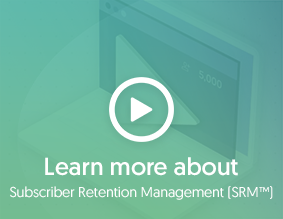Last week, Mathew Ingram from GigaOm published a very interesting article called "If a paywall is your only strategy, then you are doomed". He smartly describes that the way paywalls are currently mostly "stop-gap measures" and that the "revenue from the paywall won't even make up for what is expected to be a continuing decline in print advertising".
What is fundamentally wrong is to try to charge for something that users are not really willing to pay for online. (I've covered in an earlier post the good lessons to learn from NYT). The past years have proven that the most thriving companies on the web are the most innovative, not those who try to replicate an "offline" model online. Mathew argues there might be other ways to look at monetization strategies for newspapers, like for example selling ebooks, creating events, and also using the newspaper platform to "gather data and information that you can generate value from in other ways — including licensing it to developers and other third parties".
These suggestions are actually very interesting, and bring an interesting correlation with what i've experienced in the music industry. Check this out.
Early 2000: While working for Apple, I had heard a lot about the music industry challenges, how CD sales have been impacted by the growth of the web, piracy and other "young evils" stealing music, putting free MP3s on their iPods. Music majors started to sue young kids, in a move that would surprise many people nowawadays: attack consumers, protect the corporation. So you basically start to fight your own customers...silly. The reaction of majors was a primitive survival instinct: their $14B industry, was almost entirely on based on album sales and these were dying. So they wanted to build a "legal" paywall by suing consumers, and put all their music behind closed gardens (Rapsody, Atrac...). The reaction: illegal download exploded, and sales started to plummet (Source: CNN).
Looking only at this picture, one would think that choosing to work in the music industry is the worst choice you have made in the past 10 years....
And the most scary for the publishing industry, like newspapers, is that advertising revenues in US newspapers have followed a similar trend (Source: State of Media):
We might think that these 2 industries are doomed....because of the internet.
Well, here are the good news!
As Mathew explained, revenues might come from other sources than just sales or advertising. If the music industry is a good benchmark, then today's publisher should learn from their experience.
Back to 2011: What is the fundamental change for the music industry? Majors start to realize that they'd better give music away for free, and engage more fans. I have 2 daughters and their main sound system is YouTube. I personally mostly listen to great podcasts or iTunes radio channels. No advertising, no sales. Free music, freedom to listen to what you want, and you are not a pirate anymore. At first, you might think the music industry is now running out of control, and the trend above will just further accelerate. True, music sales for 2011 are forecasted by Forrester to just over $5B. BUT, and this is a BIG BUT: the total music industry ecosystem will reach for the first time more than $30B in revenues this year, significantly up from 10 years ago! Check this chart below:
 Source: Excellent post from Hany Nada " Music for nothing, and the Fans for free"
So the idea is the following:
Source: Excellent post from Hany Nada " Music for nothing, and the Fans for free"
So the idea is the following:
- People enjoy part of the content for free, on multiple platforms like YouTube, Spotify, Pandora and more
- They can easily access their music everywhere, from computers, phones, to cars
- They start to be strongly engage with the artist
- They start to buy more of his stuff, from books, concert tickets, merchandising, and so on.
- The industry, using a different perspective is actually very healthy.





